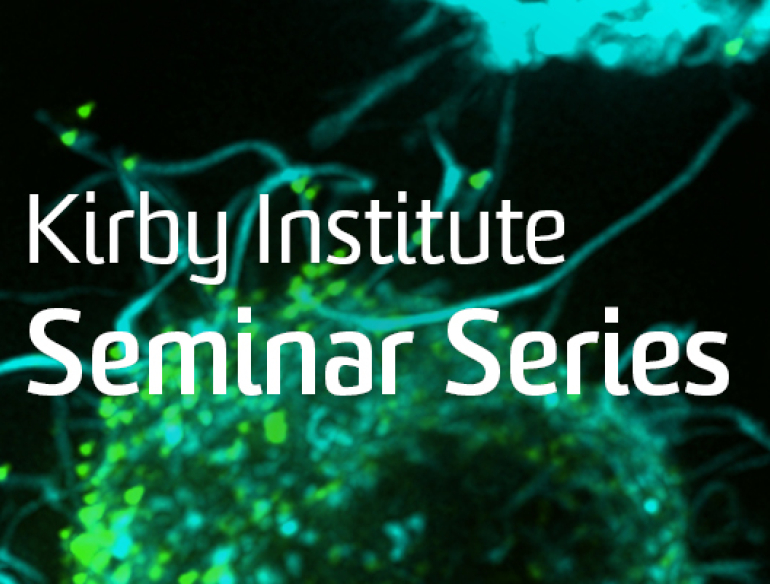Location:
Berg Family Foundation Seminar Room, Level 6, Wallace Wurth Building, Kensington Campus, UNSW Sydney
Contact for enquiries
Rata Joseph, +61 (2) 9385 0900 or recpt@kirby.unsw.edu.au
Kirby Institute Seminar Series presents
 |
Director, Chronic Conditions Program, Menzies Health Institute Queensland, Griffith University |
About your speaker
Professor McMillan is a cancer biologist whose research has focused on viral causes of cancer. He discovered the receptor for the human papillomavirus, has developed novel treatments for cancers caused by HPV, and has designed a range of novel nanoparticle delivery systems for gene silencing and editing technologies. He is Professor, Deputy Head of the School of Medical Science, and Program Director in the Menzies Health Institute Queensland, leading a team of 200 researchers, based at Griffith University’s Gold Coast Campus. Prof McMillan has had continuous NHMRC grant funding since establishing his laboratory in 1996, and has attracted over $14m in competitive grant funding. Prof McMillan has published 90 papers including papers in PNAS, Clinical Cancer Research, Oncology, Journal of Virology, Nature Nanotechnology and Nature Communications. His H-index is 36 and he has 3 patents, in the areas of siRNA, HPV and novel leukaemia therapies.
Abstract
Human papillomavirus (HPV) has been identified as the definitive agent in cancers of the cervix, penis, vulva, vagina, anus, skin, eye, and head and neck, which represents 5% of the total global cancer burden. Current therapies for advanced disease involving radiation and chemotherapy have shown little recent improvement with 5 year survival below 15%. HPV oncogenes are the driver events in the formation of cancer and this provides us with a means to find synthetically lethal genes in HPV cancers. SiRNA screening identified the Aurora A and B as synthetic lethal targets selective for HPV transformed cells. AURKA has been further investigated using the selective small molecule inhibitor Alisertib (MLN8237). We found that Alisertib was significantly more potent towards the HPV transformed cells, and selectively promoted apoptosis in the HPV cancers. We have also explored both RNAi and recently gene editing via CRISPR/Cas as therapies for HPV-driven cancers and will present our most recent findings for both in vitro and animal studies. Overall, we present a range of promising new potent and highly targeted therapeutics against HPV-transformed cancers.
